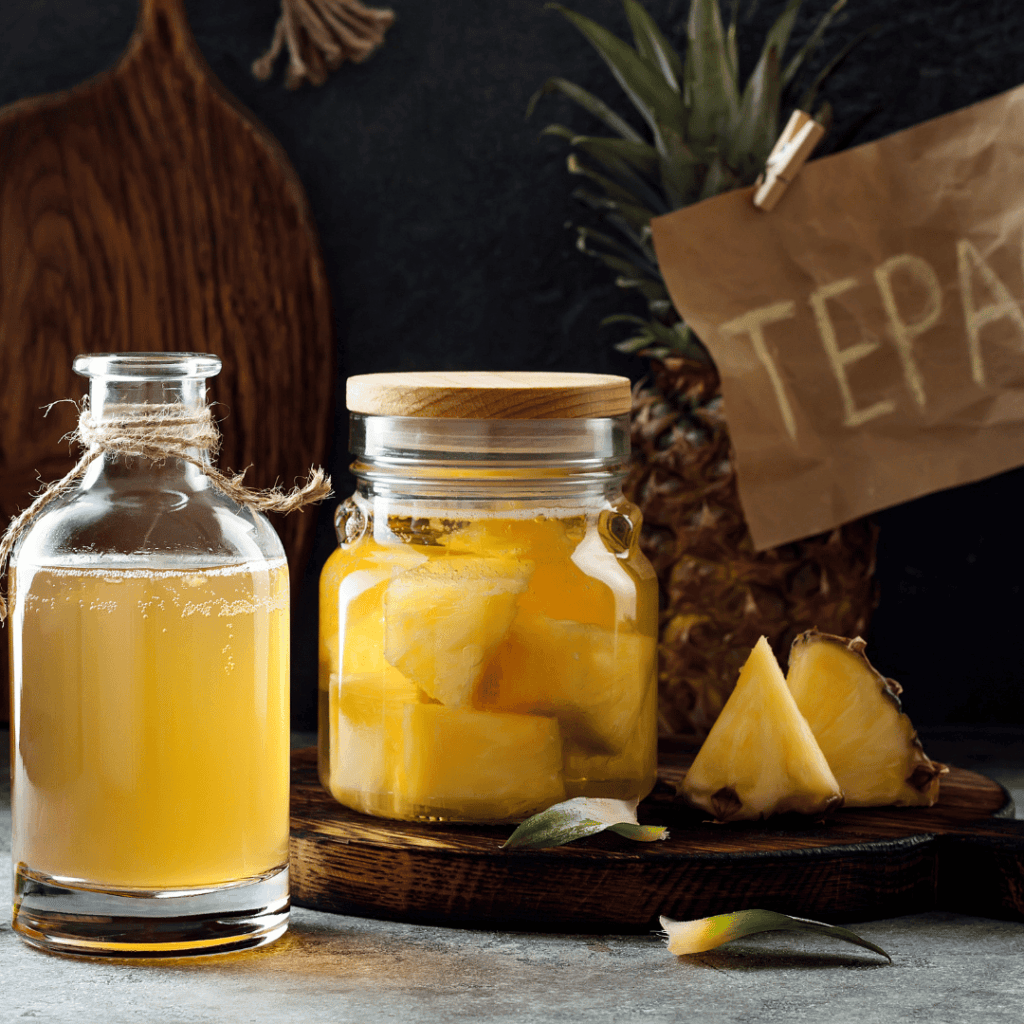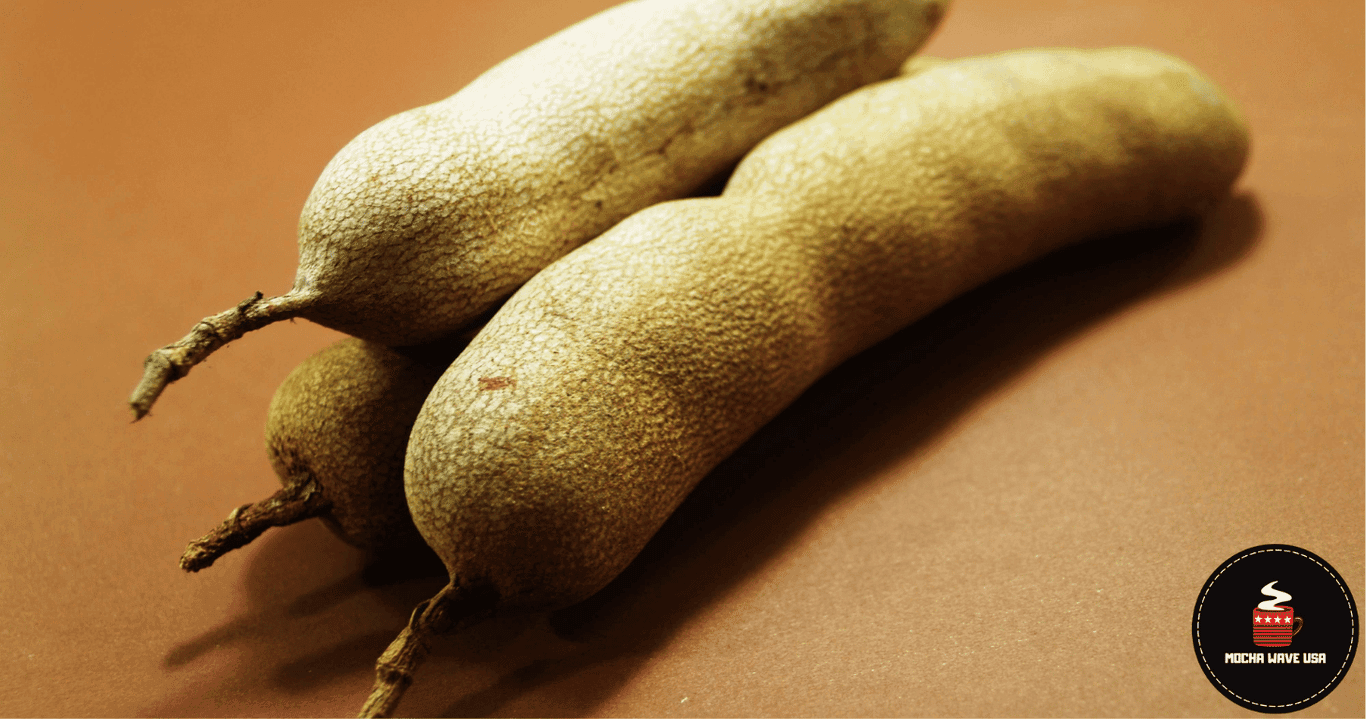Forget hot honey, sriracha, or even the scandalous return of mustard ice cream—tamarind is here to claim its throne as the flavor of the year. Yes, that’s right, 2024 was officially the year of puckering up, with this tangy, tantalizing, and somewhat misunderstood fruit stepping into the culinary spotlight. So buckle up, folks. It’s time to talk tamarind, the flavor about to sneak into your cocktails, sauces, and even your desserts, leaving you wondering, “Why have I been living without this?”
Tamarind 101: What’s the Fuss?
Let me introduce you to the Tamarindus indica for those not well-versed in tropical fruits. That’s the scientific name, but you can call it “that thing that makes your mouth water.” Originating from Africa but embraced wholeheartedly by India, the Middle East, and Southeast Asia, tamarind is that dark, sticky pulp hanging around in pods, pretending to be innocent. But make no mistake—this fruit packs a tart, sour punch that can turn your taste buds into a rollercoaster of sweet and sour delight. In some parts of the world, tamarind is like the Beyoncé of ingredients: versatile, globally adored, and with just enough bite to keep things interesting.
So, why the sudden resurgence? According to McCormick, the global seasoning giant with an uncanny ability to predict our spice rack’s future, tamarind is taking center stage because we’re all tired of burning our tongues on spicy trends. We’ve been charred, singed, and flame-broiled by the srirachas and ghost peppers of yesteryear. Now, it’s time to dial things back and experience sophisticated sour. You know, sour that’s classy enough to pair with a nice glass of Sauvignon Blanc.
How to Spot Tamarind in the Wild (Culinary Scene)
Let’s set the scene: You’re at a fancy restaurant and see “Tamarind and Pasilla Chile Glaze” on the menu. Your curiosity is piqued, but you’re also thinking, “What the heck is tamarind doing in my dinner?” Fear not, brave soul. The tamarind’s real power is in its versatility. Like that friend who can slip into any social group and somehow get along with everyone, tamarind can sweeten up a dessert or add tang to a savory dish. One minute it’s starring in a tangy chutney; the next, it’s showing up in your favorite Pad Thai, pulling the strings behind the scenes to create that perfect balance of sweet, sour, salty, and spicy. In short, it’s a culinary chameleon.

Its role in Thai, Indian, and Mexican cuisine is so integral that it’s hard to imagine life without it. Ever had agua de tamarindo in Mexico? That refreshing sweet-sour beverage has been sneaking tamarind into your life for years. And if you’ve dipped into Indian or Thai street food, there’s a good chance tamarind has already seduced your taste buds without you even knowing it. This is the kind of silent culinary stardom we’re talking about.
The Sweet (and Sour) Science Behind the Trend
I know what you’re thinking: “Okay, but why was tamarind suddenly the darling of 2024?” The answer lies in our evolving palates. We’ve been trained to chase after flavors that smack us in the face, but now we’re turning to subtler, more layered tastes—flavors that tease rather than assault. Tamarind brings that balance, offering a taste that’s part sweet, part sour, and entirely intriguing.
Tamarind’s pucker-up properties come from its high concentration of tartaric acid. It’s nature’s way of ensuring you never eat an entire pod in one sitting. (You’ve been warned.) This high acid content is also what makes tamarind a great candidate for marinades, sauces, and drinks that require a complex sour note without overwhelming everything else on the plate. If you’re wondering how something so sour can also be sweet, welcome to the beautiful world of tamarind, where contradictions reign supreme.
Where Will Tamarind Strike Next?
McCormick isn’t the only one declaring 2024 the year of tamarind. For instance, tamarind is stepping in as a hero for beverages in the quest to make healthier drinks that don’t taste like flavored cardboard. From fermented tepache (a tangy Mexican pineapple drink) to tamarind cocktails, sour is the new sweet.

And if you thought tamarind would stop at beverages, think again. It’s making moves in desserts, too. Imagine tamarind-spiked chocolate or sorbet—perfect examples of how this flavor can elevate the usual suspects. Tamarind is like that wildcard contestant on a cooking show who’s always one step ahead, adding depth to dishes that desperately need something to keep them from boring.
How to Add Some Tang to Your Life
Since tamarind is a flavor to be reckoned with, you might be willing to incorporate it into your culinary adventures. The good news is that tamarind is readily available in multiple forms—pastes, concentrates, powders, you name it. You could start with a tamarind chutney to dip your samosas in or a simple tamarind glaze for grilled meats. Or you can go full foodie and create a tamarind cocktail that’s equal parts refreshing and mouth-puckering.

If you’re feeling adventurous, why not try tamarind candy, the unsung hero of childhoods in Southeast Asia and Latin America? These chewy, sugar-coated delights give you a crash course in the tamarind experience—a burst of tangy goodness followed by a sweet finish. It’s kind of like eating a Warhead but with less existential crisis.
The Final Word on Tamarind
So, there you have it. Tamarind was officially the flavor of 2024, and it’s coming for your taste buds whether you’re ready or not. Tamarind offers a refreshing alternative if you’ve spent the last few years chasing the dragon of spicy foods or indulging in sugary fads. It’s bold yet nuanced, sour but sweet, and about to be the star of every foodie’s Instagram feed.
And let’s be honest: if kale can have a moment, why not tamarind? Besides, what’s not to love about a fruit that’s been a global culinary staple for centuries and can make your face scrunch up in delight? So go ahead and give it a try. Who knows—you might find yourself on the sour side of history, and trust me, it’s a good thing this time.
